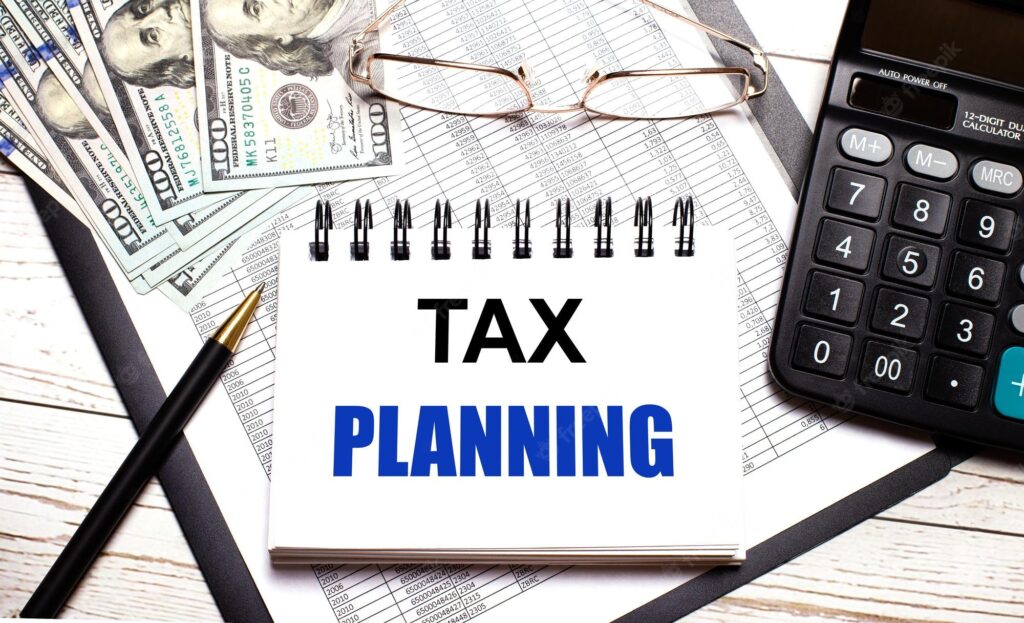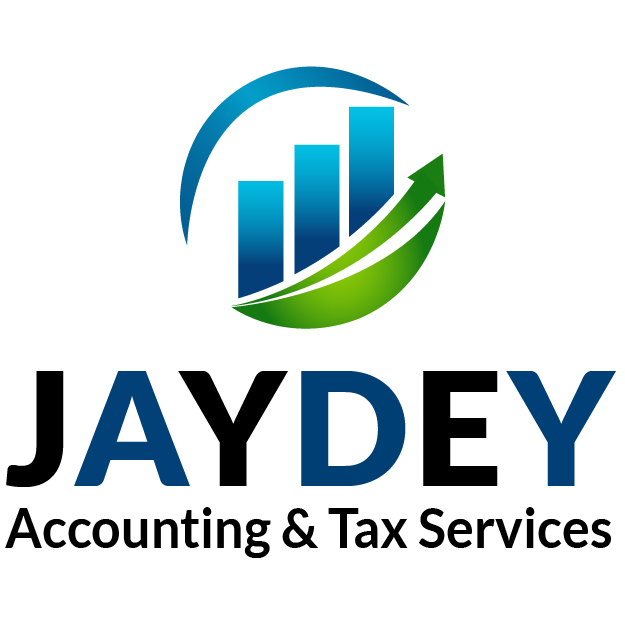tax services
our services
TAX SERVICES
The benefits of having an experienced tax specialist to do your taxes is that you can be
certain that you are taking advantage of every deduction and credit that you are entitled to.
We have the experience to minimize your tax liability by implementing tax planning.

Our tax services include:
Business tax preparation ( Sole Proprietorship, Partnership/LLC, S-corp and C-corp)
Tax planning for Entrepreneurs
Individual tax preparation
Tax strategy for Businesses
Reasons Why We Should Prepare Your Taxes
Preparing your own income tax return can be a task that leaves you with more questions than
answers. According to a study released by the US Government’s General Accounting Office, most
taxpayers (77% of 71 million taxpayers) believe they benefited from using a professional tax
preparer.
Whether we like it or not, today’s tax laws are so complicated that filing a relatively simple return can
be confusing. It is just too easy to overlook deductions and credits to which you are entitled. Even if
you use a computer software program there’s no substitute for the assistance of an experienced tax
professional.
Here's what you get...
Your tax return will be checked and rechecked by our computer software identifying potential problems the IRS may look at more closely and reviewing the math to limit IRS contacts.
Your tax return can be filed electronically so you will get a refund back quicker.
Our staff will show you how to adjust your payroll withholding to get more money back each week. Why give the IRS an interest free loan for up to 16 months.
Our staff will show you how to adjust your payroll withholding to get more money back each week. Why give the IRS an interest free loan for up to 16 months.
Books a Mess? No Problem!
If you own a small business and haven’t kept up your bookkeeping, don’t worry. We can help you.
We’ll prepare your bookkeeping for the year, prepare a full Schedule C, as well as your personal
income tax return. Then we’ll help you set up an easy system that allows you to keep your books in
tip-top shape next year.
If you’d like to receive more information about our Tax Preparation Service, please complete this
form.
Tax Planning
Planning is the key to successfully and legally reducing your tax liability. We go beyond tax compliance and
proactively recommend tax saving strategies to maximize your after-tax income.
We make it a priority to enhance our mastery of the current tax law, complex tax code, and new tax
regulations by attending frequent tax seminars.
Businesses and individuals pay the lowest amount of taxes allowable by law because we continually look for
ways to minimize your taxes throughout the year, not just at the end of the year.
We recommend Tax Saving Strategies that help you...

- Grow and preserve assets by keeping Uncle Sam out of your pockets.
- Defer income so you can keep your money now and pay less taxes later.
- Reduce taxes on your income so you keep more of what you make
- Reduce taxes on your retirement distributions so you can retire in style.
- Reduce taxes on your estate so your family keeps more of what you've made.
- Reduce Taxes on your gifts so you can give more.
- Reduce taxes on your investments so you can grow your wealth faster.
Here's just a few of the Tax Saving Strategies we use...
- Splitting income among several family members or legal entities in order to get more of the income taxed in lower bracket.
- Shifting income or expenses from one year to another in order to have them fall where it will be taxed at a lower rate.
- Deferring tax liabilities through certain investment choices such as pension plans, contributions and other similar plans.
- Using certain investments to produce income that is tax exempt from either federal or state or both taxing entities.
- Finding tax deductions by structuring your money to pay for things you enjoy, such as a vacation home.
Remember, we work for you not for the IRS. Many of our clients save many times the fee in reduced tax
liability through careful planning and legitimate tax strategies.
7 Tax Strategies for Business Owners To Reduce Tax Liability
1. IRA Funding Trick
If you don’t have enough cash to make a deductible contribution to your IRA by April 15th, here is
how you can still take the tax deduction for that tax year. To get started, all you need is an existing
IRA.
Begin by having $6,000 distributed to you from your IRA. Once you have the $6,000, immediately
deposit it back into your IRA. If you do this before April 15th, this counts as your deductible
contribution for the year. The best part of this is that you have 60 days to “make up” the $6,000
withdrawal (and avoid penalties and taxes). To do this, simply deposit a $6,000 “rollback” into the
same IRA account within 60 days and you will be able to avoid taxes and penalties on the original
$6,000 distribution made to you.
This is a type of short-term loan from your IRA to make this year’s deductible contribution before the
April 15th due date; however, you can only do this once in a 12-month period. If you don’t replace
the money within 60 days, you may owe income tax and a 10 percent withdrawal penalty if you’re
under the age of 59 1/2.
This is a type of short-term loan from your IRA to make this year’s deductible contribution before the
April 15th due date; A 2014 Tax Court opinion, Bobrow v. Commissioner, T.C. Memo. 2014-21 held that the
limitation applies on an aggregate basis, meaning that an individual could not make an IRAto-
IRA rollover if he or she had made such a rollover involving any of the individual’s IRAs in
the preceding 1-year period. The IRS issued a revised regulation regarding this decision,
which became effective on January 1, 2015.however, you can only do this once in a 12-month period. If you don’t replace
the money within 60 days, you may owe income tax and a 10 percent withdrawal penalty if you’re
under the age of 59 1/2.
The ability of an IRA owner to transfer funds from one IRA trustee directly to another is not
affected because such a transfer is not a rollover and, therefore, is not subject to the onerollover-
per-year limitation.
2. Determine the "Best" Retirement Plan Option
As a self-employed small business owner, there are several retirement plan options available to you,
but understanding which option is most advantageous to you can be confusing. The “best” option for
you may depend on whether you have employees and how much you want to save each year.
There are four basic types of plans:
- Traditional and Roth IRAS
- Simplified Employee Pension (SEP) Plan and Savings Incentive Match Plan for Employees (SIMPLE)
- Self-employed 401(k)
- Qualified and Defined Benefit Plans
To make sure you are getting the most out of your financial future, contact the office to determine
your eligibility and to figure out which plan is best for your tax situation.
3. Make Your Landlord Pay for Improvements
Instead of paying for leasehold improvements at your place of business, you can ask your landlord
to pay for them. In return, you offer to pay your landlord more in rent over the term of the lease. By
financing your leasehold improvements this way, both you and your landlord can save money on
taxes.
Under the Tax Cuts and Jobs Act of 2017 (i.e., tax reform), qualified leasehold improvement was
superseded by qualified improvement property (QIP). Ordinarily, you must deduct the cost of
qualified improvements made to your place of business over a 39-year period (similar to that of
depreciating real estate); however, up to $1,000,000 in qualified leasehold (as well as restaurant
and retail) improvements can be expensed using the Section 179 deduction (subject to certain
rules), thanks to tax reform legislation passed in late 2017. Improvements must be interior, that is,
roof HVAC systems, façade work and other exterior improvements such as on the roof do not
qualify.
Per the Coronavirus Aid, Relief, and Economic Security Act (CARES Act), Qualified
Improvements to Property placed in service after 2017 are allowed over a 15-year period
(vs. 39 years). In most cases, post-2017 QIP retroactively qualifies for the bonus
depreciation deduction as well.
The PATH Act changed the definition of qualified property from qualified leasehold improvements to
qualified improvement property. The rules regarding qualified improvement property differ from
those for qualified leasehold improvement property in that the improvement does not have to be
made pursuant to a lease and does not have to be made to a building more than three years old.
For tax years 2016 and 2017, the rules still apply for defining qualified leasehold improvements. In
addition, the 15-year recovery period for leasehold, retail, and restaurant improvements was made
permanent by the PATH Act as well.
At the same time, your landlord will gain depreciation deductions for the cost of the leasehold
improvements. When you leave, your landlord will still have the improved property to offer other
future tenants. It is a great opportunity for a win-win situation giving you faster access to invested
monies.
4. Deduct Home Entertainment Expenses
If you host a company picnic or holiday party at your home, then the cost of meals at your home is a
deductible expense and you can deduct 100% of your meal expenses. However, under tax reform,
and starting in 2018, entertainment-related expenses are no longer deductible.
Prior to tax reform, 50 percent of your business-related entertainment expenses (with some
exceptions) were generally deductible.
Per the Coronavirus Aid, Relief, and Economic Security Act (CARES Act), Qualified
Improvements to Property placed in service after 2017 are allowed over a 15-year period
(vs. 39 years). In most cases, post-2017 QIP retroactively qualifies for the bonus
depreciation deduction as well.
5. Deduct Holiday Gifts Without Receipts
Don’t overlook the deductible benefit of business gifts during the holidays or at any other time of the
year. Whether you are a rank-and-file employee, a self-employed individual, or even a shareholderemployee
in your own corporation, you can deduct the cost of gifts made to clients and other
business associates as a business expense. The law limits your maximum deduction to $25 in value
for each recipient for which the gift was purchased with cash.
6. Deduct Your Home Computer.
Tax reform legislation passed in 2017 repealed certain itemized deductions on Schedule
A, Itemized Deductions for tax years 2018 through 2025, including employee business
expense deductions related to home office use. Prior to 2018, If you purchased a computer
and used it for work-related purposes as an employee, you were able to deduct the cost as
long as you met certain requirements such as your computer must be used for convenience
and as a condition of your employment, for instance, or if you telecommute two days a week
and work in the office the other three days.
If you are self-employed, you can take advantage of Section 179 expensing even if you don’t claim
the home office deduction. Section 179 allows you to write off new equipment (including computers)
in the year it was purchased as long as it is used for business more than 50 percent of the time
(subject to certain rules).
7. Have Your Company Buy You Dinner
Prior to tax reform, i.e., for tax years before 2018, this expense was 100 percent deductible.
Furthermore, per tax reform legislation, this expense is nondeductible after 2025. However,
for tax years prior to 2018 the following was allowed:
If you are in a partnership or a shareholder-employee in a regular C or S corporation, and
you have to work overtime, your company can, on occasion, provide you with meal money
for dinner. The cost of this “fringe benefit” is 50 percent deductible for your company under
Section 132 of the Internal Revenue Code and you don’t have to pay personal income tax on
the value of the meal.
Your company can pay directly for the meal or can instead, provide you with dinner money.
But, in order for this to work, the amount of money you receive for your meal must be
reasonable. If the IRS decides that the amount of money you received from your employer
was unreasonable, the entire amount will be considered taxable personal income and will
not be deductible.
